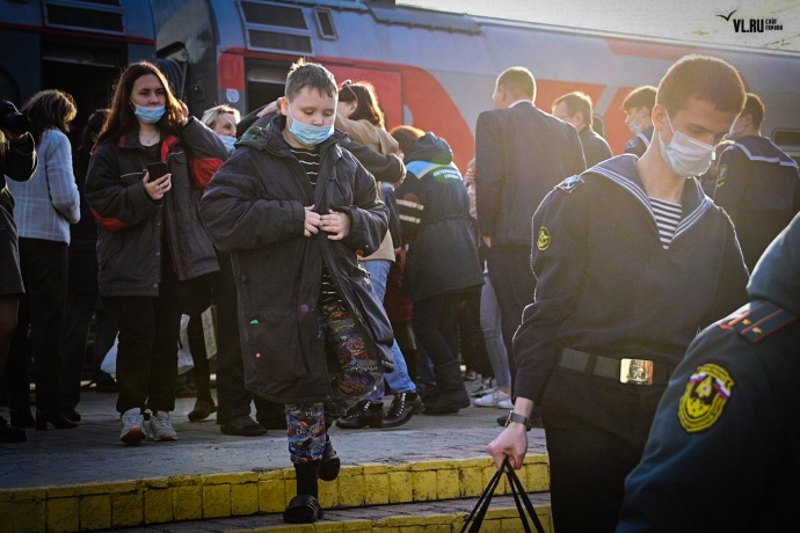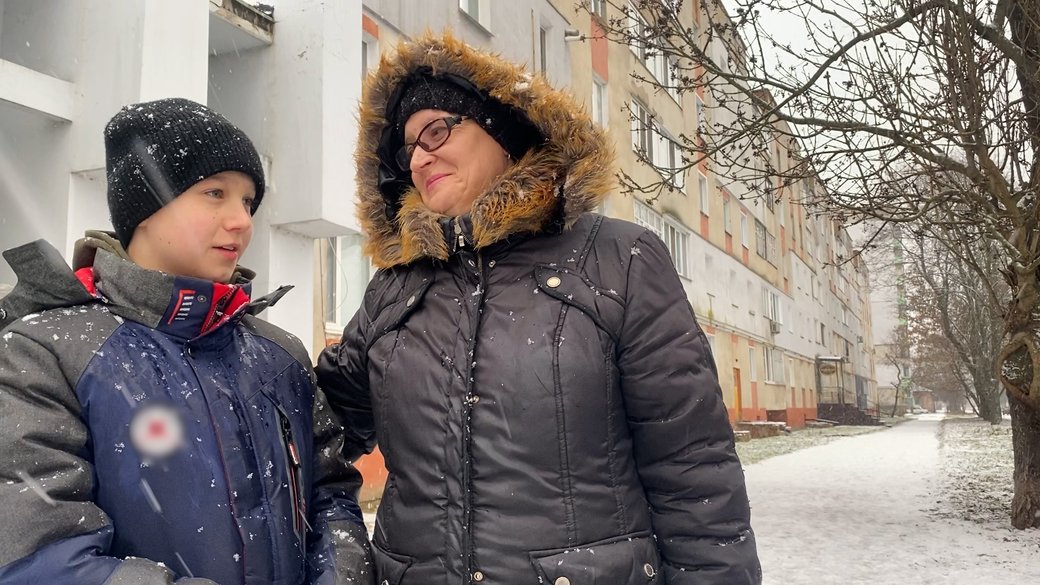The forced deportation of children is an act of genocide

On Monday 13 March 2023, the International Criminal Court announced that it had begun two investigations into Russia’s activities in Ukraine: one concerned deliberate attacks by Russia on the country’s civil infrastructure; the other, the abduction of Ukrainian children and their transfer to the Russian Federation. That Friday (17 March) the Court issued arrest warrants for the Russian President, Vladimir Putin, and for Maria Lvova-Belova, the RF Children’s Commissioner: both were charged with deporting Ukrainian children.
In autumn 2022 the Kharkiv Human Rights Protection Group (KHPG) set up a working group that began to gather evidence about acts of genocide committed in Mariupol (Donetsk Region). Part of the evidence concerned the forced deportation of children from the city. At present the group is working on a presentation to the International Criminal Court that will cover the forced deportation of children from all over Ukraine. There are serious grounds, in our view, to consider that this activity was an act of genocide against the Ukrainian nation.
War Crimes and Genocide
Russia’s actions violate the requirements of the Fourth Geneva Convention (12 August 1949) concerning “the protection of civilian persons in time of war”. Article 50 of the Fourth Convention refers specifically to ‘Children’ as Protected Persons in Occupied Territories. “The Occupying Power shall take all necessary steps”, it states, “to facilitate the identification of children and the registration of their parentage. It may not, in any case, change their personal status, nor enlist them in formations or organizations subordinate to it.” However, Russian actions with respect to Ukrainian children also bear the hallmarks of genocide, the most serious of international crimes.
The 1948 Convention “on the Prevention and Punishment of the Crime of Genocide” recognises and lists five separate deeds in relation to a specific national, ethnical, racial or religious group, with the purpose of its partial or total annihilation. One such deed is the forcible transfer of “children of the group to another group” (Article 2 [e] of the Convention). The same definition is affirmed in Article 6 [e] of the Rome Statute under which Russia’s political leadership could be charged and prosecuted.
Genocide is primarily associated with mass murder, but it was no accident that the transfer of children from one human group to another was listed as a genocidal act from the outset (see the 1948 Geneva Convention on Genocide). Those who drafted the 1948 Convention included this point because a nation (religion, racial or ethnic group) could be destroyed even if certain members survived and suffered no direct physical harm. The forced transfer of children to another group could be the equivalent of its annihilation if they were provided with a different education to that provided by their own nation (religion, racial or ethnic group), adopting new customs, a new religion and, probably, a new language.
The Evidence
During the past year of war Russians have devised a particular system for the forced deportation of Ukrainian children. To simplify, their actions may be described as follows:
- The transfer of Ukrainian children from the occupied territories to Russia;
- Their placement in temporary holding centres (sanatoria, children’s homes, summer camps);
- The fast-track conferral on them of Russian citizenship; and
- Their adoption by Russian families.
For the time being it is quite hard to establish with any accuracy the number of children deported from Ukraine. For obvious reasons ties have been lost with many of them. As of 1 April 2023, the “Children of War” website contains information about 19,523 Ukrainian children who have been deported. Those are children about whom it has proved possible to establish information. The true figures, in our view, are considerably higher.
In some cases, children are parted from their parents during ‘filtration’ procedures. For example, in March 2022 12-year-old Oleksandr Radchuk and his mother Snizhana were deported by Russian soldiers from Mariupol. Snizhana was detained during the filtration process and sent to a ‘filtration camp’. That was the last time Oleksandr saw his mother. The Russians did not permit the boy to ring his relatives; they said he would be adopted by a new family in Russia. Miraculously, Oleksandr managed to contact his grandmother Ludmyla and avoid being deported. She has described how Russian social workers tried to dissuade her from attempting to retrieve her grandson. It would not be easy, they said: she would have to gather a mass of documents and go through all kinds of bureaucratic procedure.

On 14 February 2023, the Yale School of Public Health published a 32-page report about “Russia’s systematic program for the re-education & adoption of Ukraine’s children”. This confirmed that Russia has a network of 43 children’s camps where Ukrainian children are being held. In 32 of the camps the children are being re-educated in special classes that include the Russian version of history, culture and society. In some cases, the children also undergo military training. The purpose of these activities, it seems clear, is to integrate Ukrainian children into Russian society.
Citizenship and Forced Adoption
As noted above, an important aspect of the process is the fast-track conferral of Russian citizenship. On 30 May 2022, RF President Vladimir Putin approved Edict No. 330. This document states that orphans, children without parental care (guardianship) and legally incapable people who are citizens of Ukraine or of the Donetsk and Luhansk “people’s republics” may be fast-tracked to receive Russian citizenship. By signing this Edict at the highest political level, the Russian president confirmed the policy of forced deportation of Ukrainian children to Russia.
The final stage is the adoption of Ukrainian children by Russian families. The actions of Maria Lvova-Belova in this respect are revealing. In her 21 September 2022 Telegram channel message, the RF Children’s Commissioner stated that her adoptive teenage son from Mariupol had been granted Russian citizenship. “For my adopted son from Mariupol”, she wrote, “this is proof that he now belongs here — in our country and society, among his contemporaries”. From various sources we have learned that Russian families who wish to adopt children from Ukraine must undergo courses in ‘ideological preparation’.
The adoption of a Ukrainian boy by Maria Lvova-Belova, the RF Children’s Commissioner, fits exactly the description of the promotion or open propaganda of such action among the Russian population. “Russian sources and proxy officials are flagrantly touting the forced adoption of Ukrainian children into Russian families,” remarked the US Institute for the Study of War in a report on 16 November last year. In November 2022, well-known Russian military bloggers began promoting a documentary serial about several children from the Donbas who had been adopted by Russian families. During the course of 2022, the documentary asserted, Russian officials had transferred more than 150,000 children from Donbas to Russia.
*
In other words, Russian actions are neither accidental nor haphazard. They form part of a well-organised system. There are serious grounds for believing that the purpose of these actions is the partial or total destruction of the Ukrainian nation. They may thus be classified as ‘genocide’.